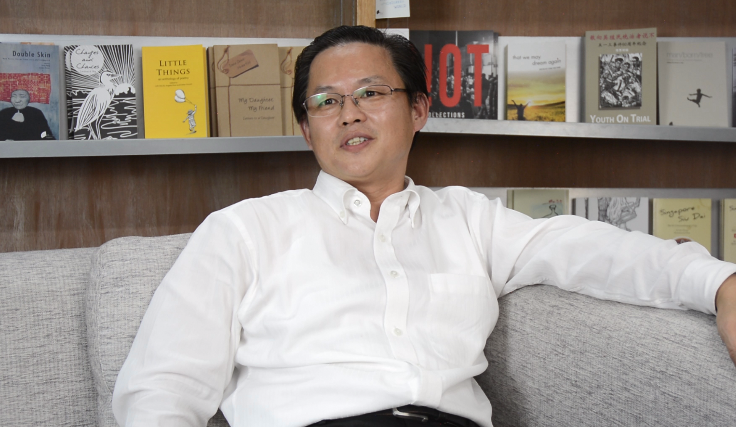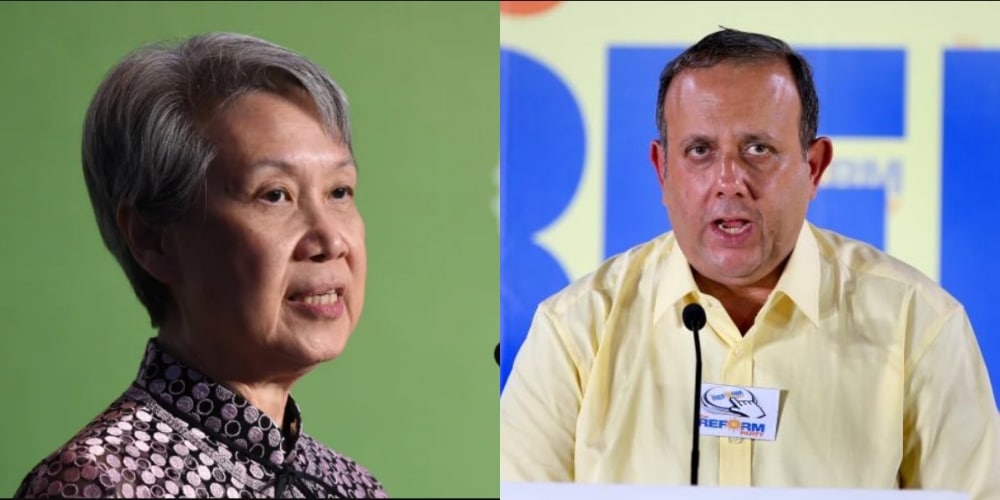It has been four years since seven elected opposition MPs from the Workers’ Party claimed victory in GE 2011. Opposition party supporters celebrated this high point in the political landscape in Singapore and much was made of this milestone.
The backdrop against the 2011 election results was bubbling discontent within the populace at rising house prices and growing number of immigrants coupled with the proliferation of new means online to discuss such dissatisfaction and exchange new ideas. Do these issues still abound? Come 11 September 2015, how will the WP fare? More importantly, will the PAP’s vote share further decrease?
To have a meaningful discussion on the above, the following questions will have to be answered:
- What led the People’s Action Party to lose seats in the first place? Are those factors still present?
- What are the WP’s contributions to the political climate and government policy, against what the PAP has done?
- Has the WP filled the gaps left by the PAP?
To be fair, we need to remember that the PAP still holds the overwhelming majority in Parliament. They have held power for 50 years with virtually no competition. In contrast, the WP has only seven elected MPs in Parliament and all its achievements and/or failings have to be viewed within that context to ensure equity.
Elitism and PAP’s slip in popularity
Prior to GE2011, there had been growing resentment towards the incumbent ruling power. Sentiments on the ground among many Singaporeans was that the men in white were in their ivory towers, unable and unwilling to empathise with the problems of the general public.
The explosion of the Internet and its usage within the political sphere was a game changer in political tactics. While the proliferation of the Internet did not cause the resentment against the government, it provided a forum for such sentiments to be voiced. It also provided a far reaching platform for those with alternative political views to publicise their solutions and ideas. Alternative political parties had the opportunity to respond to an interested audience directly on government policy. The general public had exposure to fresh opinions and opposition politicians had exposure to a receptive audience.
 This scenario leant itself very favourably to the WP who has long cultivated support at the grassroots level and were able to come across as “at one with the people” in the same way PAP’s Lee Kuan Yew once did. Being able to identify with the average Singaporean and having the chance to proclaim that empathy to a large audience almost instantaneously is a potent weapon which was effectively harnessed by the WP in 2011.
This scenario leant itself very favourably to the WP who has long cultivated support at the grassroots level and were able to come across as “at one with the people” in the same way PAP’s Lee Kuan Yew once did. Being able to identify with the average Singaporean and having the chance to proclaim that empathy to a large audience almost instantaneously is a potent weapon which was effectively harnessed by the WP in 2011.
In contrast, the PAP had developed an elitist reputation which was widely publicised and culminated in public disdain.
While Singaporeans were not ready for an all out change in government, they did take the unprecedented (and brave, by Singapore standards) step of voting an opposition party into a Group Representative Constituency, a hallowed ground for PAP dominance.
Fast forward four years, it is unfortunate that strong feelings of PAP elitism still endure. This is something that has not gone unnoticed and was indeed commented upon by outgoing PAP MP Inderjit Singh.
Despite various hiccups, which I will delve on later, the WP is still seen as much more down to earth than the PAP. This grounded reputation and the ability to publicise it online is something that will still be in the WP’s advantage this GE.
Whether we like it or not, it is still far easier to pick on and expose PAP elitism and this is set to continue. While the PAP has 50 years of political experience, it also has 50 years of built up inaccessible pride that it will find difficult to distance itself from.
Policy trip-ups, town councils and scandals
While the PAP may seem stuck up and the WP the popular kid on the block, this in itself will not be enough to sway the voters. The truth is that the PAP has had 50 years of experience and Singaporeans have just been reminded of how far Singapore has come with the passing of former PM Lee Kuan Yew and the SG50 celebrations.
To give credit where credit’s due, the PAP have indeed made many contributions to Singapore. Could another party have done the same? Perhaps, but that’s not really the point anymore.
 Since GE 2011, the PAP has published a Population White Paper that has proven to be highly unpopular. Widely criticised, it sealed within the minds of many Singaporeans that the PAP was an insincere party that was happy to ride rough shod over its people. Coming so soon after the election, many saw it as a slap in the face.
Since GE 2011, the PAP has published a Population White Paper that has proven to be highly unpopular. Widely criticised, it sealed within the minds of many Singaporeans that the PAP was an insincere party that was happy to ride rough shod over its people. Coming so soon after the election, many saw it as a slap in the face.
Here the WP stepped in with much aplomb. It published its own shadow White Paper – titled “A Dynamic Population for a Sustainable Singapore”, in direct contrast to PAP’s “A Sustainable Population for a Dynamic Singapore” – which not only showed Singaporeans that it was on the side of average Joe but also that it had the resources to effectively challenge the incumbents.
The WP was also seen to tackle another bugbear that the voting public have – that of inflated ministerial salaries. The WP made the point that public service was an honour while the PAP appears to be greedy and money faced.
The PAP have long promoted the belief that high salaries attracted talent and prevented corruption. I don’t know if that is entirely true. While I believe that talent should be fairly rewarded, I am not entirely convinced that the current system provides the fairest form of remuneration. I am also at odds with the corruption argument. Can it not be conversely argued that exceedingly high remuneration is a form of state sanctioned corruption?
The point is, while the public agree with good remuneration for those who have distinguished themselves, the sum of what constitutes good remuneration may be subjective. Who the deserving ones are is also the subject of much debate.
Here again, the WP have the advantage. The WP MPs joined WP when it was not profitable to be in opposition politics. Not only is it not advantageous, it is deemed by many to be detrimental to be involved in opposition politics.
Sad to say, it would appear that some elements of the PAP still have not copped on to public sentiment and insist on trying to defend this dead horse.

The WP has obviously had their fair share of problems. The whole AHPETC saga is one that has seen recent and enduring limelight. Nevertheless, the only thing we can effectively surmise from this saga is the WP’s lack of experience with managing a GRC. This is not really surprising given that they are totally new to the game. While unfortunate, the AHPETC saga is hardly the end of the road for the WP. Everyone needs training and exposure and the WP is no exception. This baptism of fire is absolutely necessary and as long as the WP emerges with fortitude and learning, this bane can eventually become a boon.
The silver lining is that this whole debacle has created much public awareness on how town councils are run and exposed certain procedural failings of the People’s Association. Unwitting as it may be, the WP’s trip up led to some much needed exposé.
The Yaw Shin Leong scandal is yet another public embarrassment for the WP. After garnering votes by projecting a steadfast reputation based on strong middle classed values, it was a slap in the face for an MP to be caught with his pants down. To make matters worse, Yaw seemed unable to face the consequences of his actions and went missing in action leaving a newly empowered WP to clean up the mess. Perhaps this was yet another sign of the WP’s lack of experience. Being new to the power game, its MPs were perhaps struggling to cope with the intensified public scrutiny.
Fortunately for the WP, the PAP’s ability to cash in on this golden opportunity was short-lived when its own MP in the form of Michael Palmer was similarly disgraced. Perhaps due to greater political savvy and experience, the PAP handled the situation in a far more efficient way. Palmer made a prompt contrite apology and resigned almost immediately as opposed to the long and dragged out affair that was Yaw. Or perhaps, the PAP had Yaw’s example to learn from.
Whatever the case, one outcome of the scandals is that it has caused the PAP to be slightly less complacent about its public image.
WP plugging PAP’s gaps?
 Personally, I think the WP has done reasonably well. They had to juggle their election promises while ensuring that there is still a functioning relationship with the rest of Parliament. There is a limit to what seven MPs can do and people should understand that.
Personally, I think the WP has done reasonably well. They had to juggle their election promises while ensuring that there is still a functioning relationship with the rest of Parliament. There is a limit to what seven MPs can do and people should understand that.
While the WP is clearly not yet ready to form a majority government, it does not mean that they never will. They need to gradually adopt a more national outlook. While grassroots activities are important and form the crux of the WP’s support base, it needs to develop a more holistic national approach if it ever wishes to be considered ready to form a majority government.
Recent reports that the WP MPs have chosen not to attend SG50 celebrations, while drawing approval for avoiding what was seen as a PAP election rally, also highlights that their focus still remains very regional. This will need to be broadened over time.
That said, the WP still serves a very viable role of providing a credible opposition. Any government, no matter how proficient, should still be held accountable as the public demands more transparency. Perhaps the key benefit of seeing such a sizeable number of MPs this past four years is that Singaporeans are now cognisant about the need for more opposition in Parliament as a check and balance. The WP, to their credit, have played this role very well.
If we focus on the WP’s achievements as a merely PAP-WP face off, we might feel a tad disappointed, for the WP is still currently a very small force. But if we place it in the incumbent-challenger perspective, and given the greater number of highly electable opposition politicians across all opposition parties this GE2015, we have a lot more hope for Singapore as a democracy.






